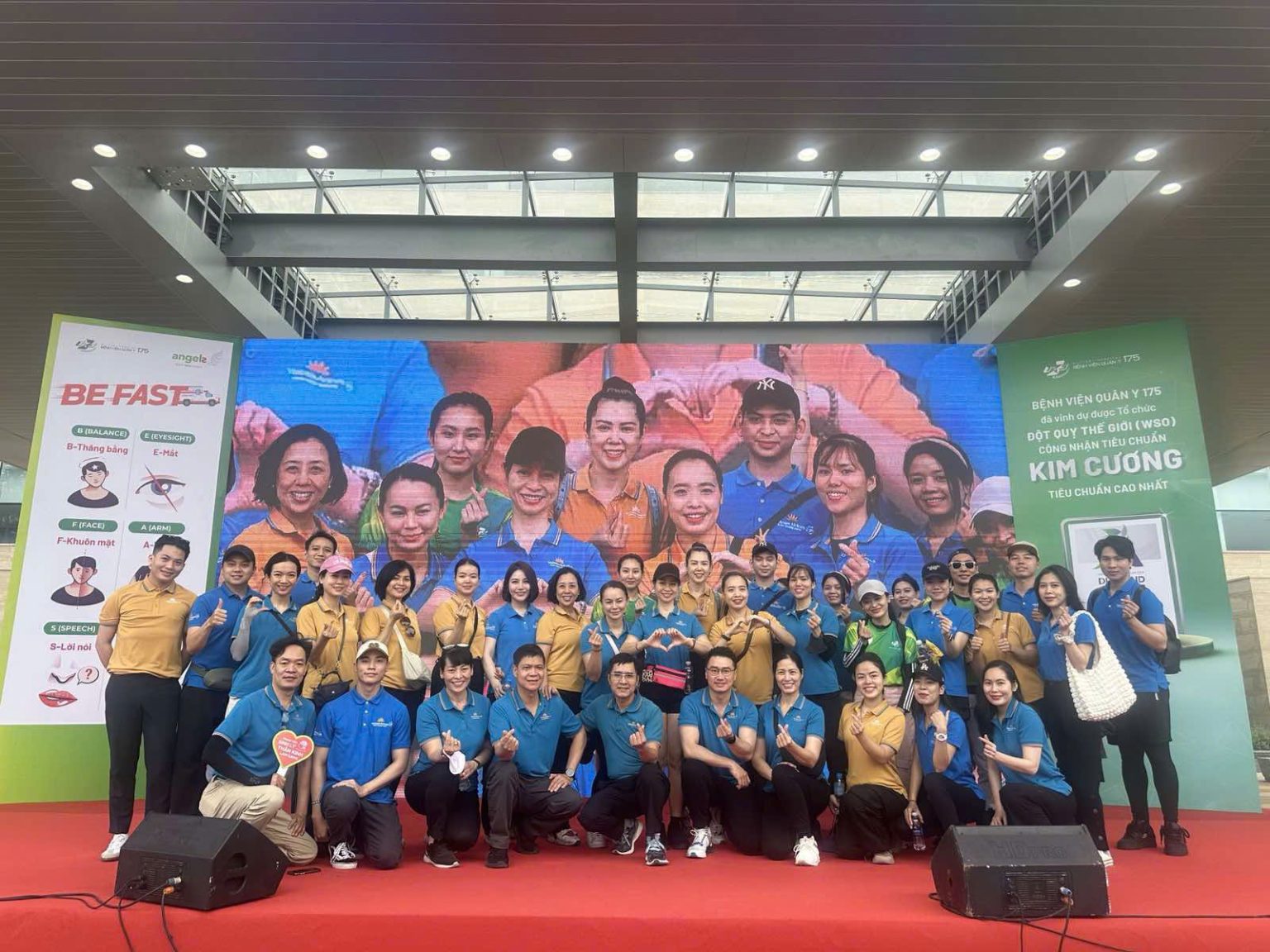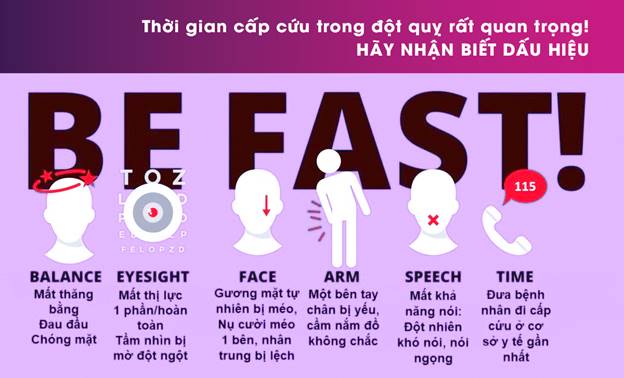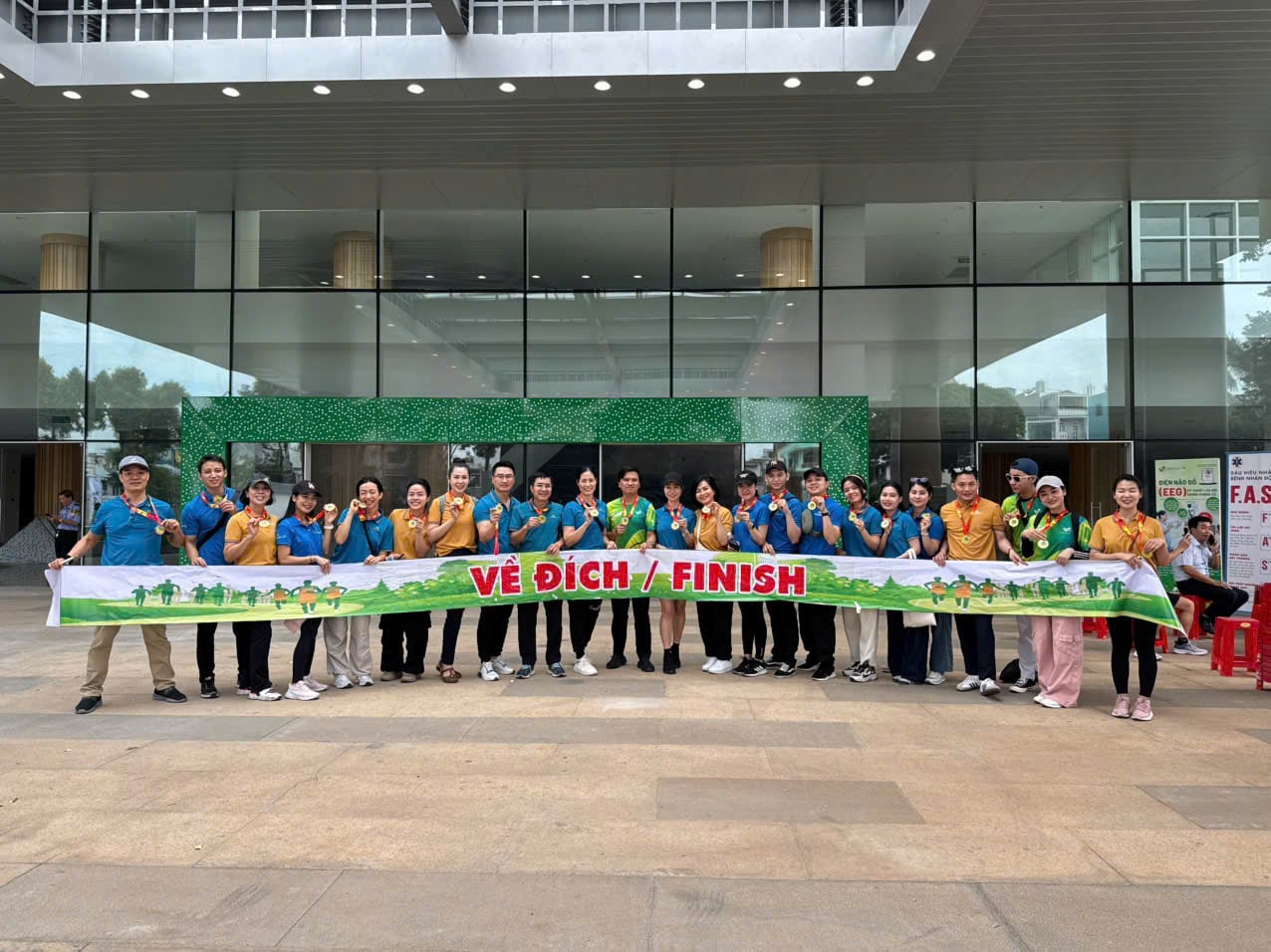This meaningful activity aimed to raise awareness and understanding of stroke — one of the leading causes of death and disability worldwide.

Staff and flight attendants from the Southern Cabin Crew Division participated in the program "Walking to Raise Community Awareness About Stroke."
The program began with a talk by People's Doctor, Associate Professor Dr. Tran Quoc Viet, Director of Military Hospital 175, who shared alarming statistics about stroke.
Currently, around 15 million people worldwide suffer from strokes each year, with 5 million deaths and 5 million cases of permanent disability. In Vietnam, there are over 200,000 stroke cases annually, with a mortality rate of 50%, 45% surviving with disabilities, and only 5% fully recovering.
Notably, Vietnam’s stroke mortality rate is higher than the global average, and the number of young stroke victims is increasing. Therefore, raising awareness, changing daily habits, and knowing how to respond promptly are essential.
Following the opening remarks, Dr. Hoang Tien Trong Nghia, Head of the Department of Neurology, gave detailed instructions on recognizing and administering first aid for stroke. He emphasized:
“Many people still apply incorrect first-aid methods such as pricking fingers to draw blood, laying the patient flat on their back, or using traditional medicine without guidance. Instead, the patient should be immediately transported to a hospital, and the BE FAST rule should be applied to recognize stroke symptoms.”
The BE FAST rule includes:
- B = Balance: Loss of balance, dizziness, or sudden severe headache.
- E = Eyes: Sudden vision loss, blurred or double vision.
- F = Face: Facial drooping or uneven smile.
- A = Arms: Arm weakness or inability to lift an arm.
- S = Speech: Slurred speech, difficulty speaking, or inability to understand speech.
- T = Time: If any of these symptoms appear, call emergency services or rush the patient to the hospital immediately. Time is critical — treatment within the first 3 hours greatly improves chances of recovery and reduces severe aftereffects.
Additionally, Dr. Trong Nghia provided practical tips for stroke prevention, such as maintaining a balanced diet, regular exercise, weight control, limiting alcohol and tobacco use, and maintaining a positive mindset.

The program concluded with a walking competition around Military Hospital 175.
Every participant received a medal, reinforcing the message: Each step taken today is a meaningful action to protect our health and the well-being of the community.



















